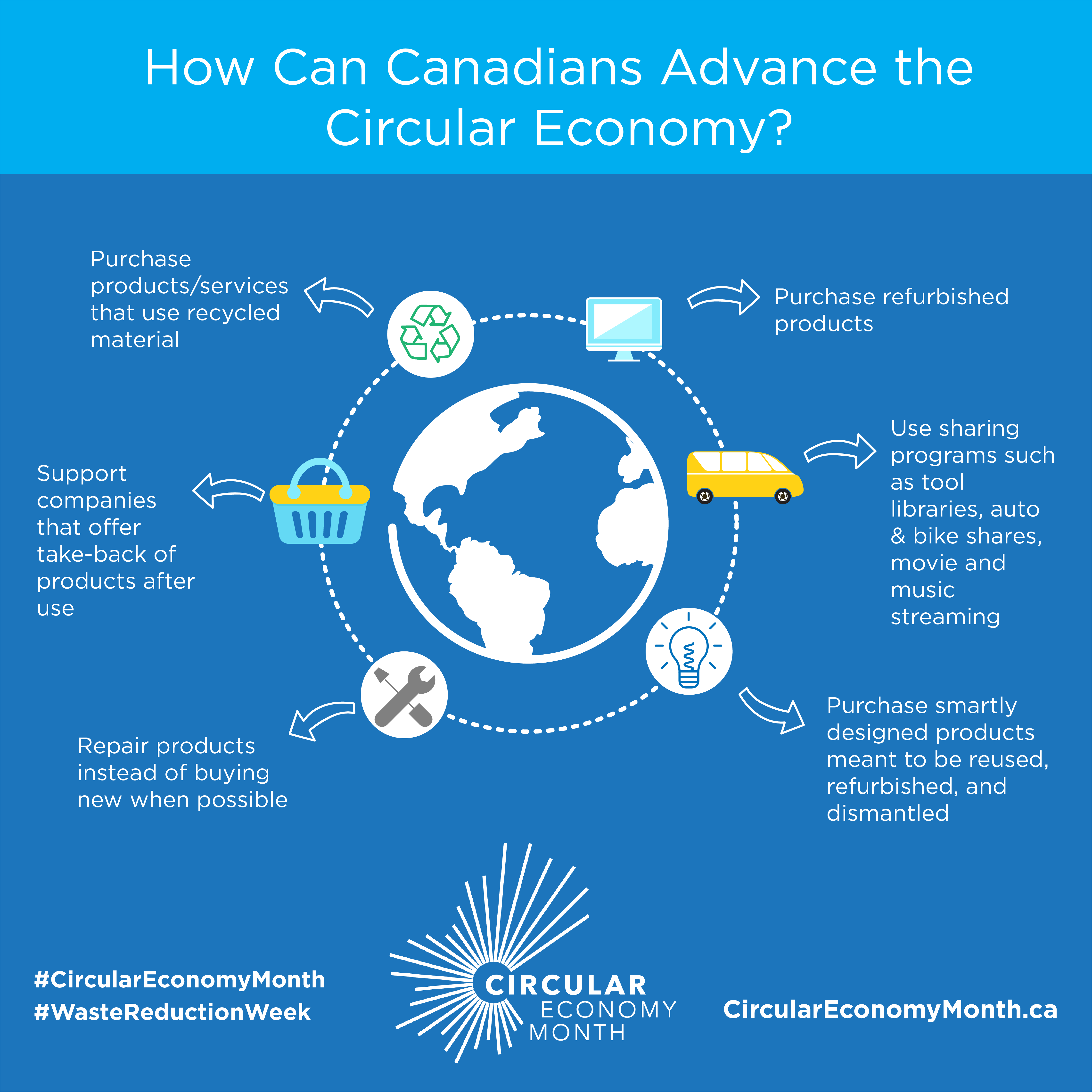A Change of Perspective on Waste Reduction
October 17 to 23, 2022 is Waste Reduction Week in Canada! Making small changes in our daily habits can have a big impact on the amount of waste we generate over time. Waste not only takes up valuable space in our landfills, but it also pollutes our air and water and contributes to climate change.
There are many things we can do to reduce the amount of waste we produce. Waste Reduction Week is a wonderful opportunity to challenge ourselves and make impactful changes for the years to come!
Embracing Waste Reduction Week
What will you do to reduce your household’s waste this year? Need ideas? You can start by learning more about circular economy:
We often think of waste reduction in terms of recycling paper, glass, and aluminum cans. While recycling is important, there are plenty of other resources that warrant a change of perspective. Consider textiles, e-waste, plastics, and food waste:
- Reduce your family’s demand for new textiles.
- Keep your electronic waste out of landfills, plus try to keep your devices for longer.
- Make simple changes in your everyday life to reduce your plastic footprint.
- Make a food waste prevention plan.
- Embrace the sharing economy!
Used Oil and Antifreeze Recycling in Saskatchewan
In Saskatchewan, the Saskatchewan Association for Resource Recovery Corp. (SARRC) manages recovery of used oil and antifreeze materials. Saskatchewan has 37 purpose-built EcoCentres in major communities, with nearly 100 drop-off points province-wide. These are convenient drop-off points for what we call small generators. A do-it-yourself mechanic, a farmer or small business may have smaller quantities of used oil, filters, used antifreeze, and oil/antifreeze/diesel exhaust fluid (DEF) plastic containers that can be easily transported to a nearby collection facility, and which may be too small for registered collectors to pick up.
Saskatchewan businesses and residents purchase between 35 and 40 million litres of oil every year, plus 2 to 4 million litres of used antifreeze, 2.5 million oil filters and 1 million kilograms of oil, antifreeze and DEF containers. Before the program was introduced, most were discarded. Our recycling program keeps these potentially hazardous materials out of landfills. Plus, re-refining used oil completely restores the original lubricating properties of the oil and takes about one-third of the energy of refining crude oil to lubricant quality. A perfect example of the circular economy!
Since 2017, when SARRC started tracking greenhouse gas emissions, the program has saved over 223,900 tonnes CO2 equivalent – that’s something we can all be proud of! View 2021 stats here.
Waste Reduction Week is a great time to reassess our recycling habits and see where we can make improvements. This year, SARRC is encouraging people to change one wasteful habit and challenge themselves to do better. Check out some of the Waste Reduction Week website links in this article for some great ideas on how you can make a difference. SARRC’s executive director will also be on the air during the week, discussing the importance of the circular economy and used oil and antifreeze materials. Tune in and learn how you can make a positive impact on the environment!
- Global Saskatoon on October 17th at 7:50 a.m.
- CTV Saskatoon on October 18th at 7:20 a.m.
- CTV Regina on October 20th at 8:40 a.m.






